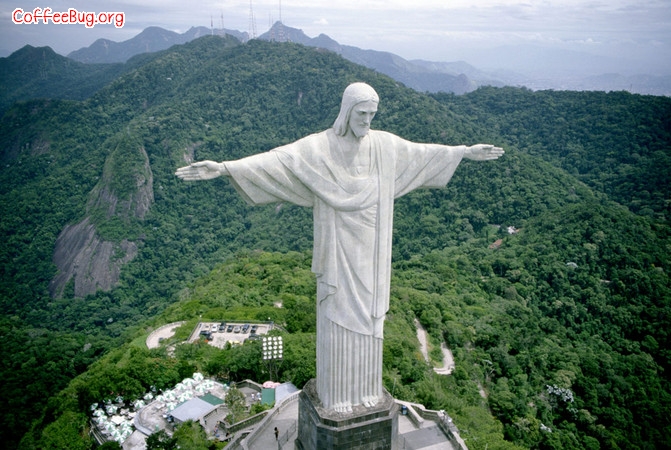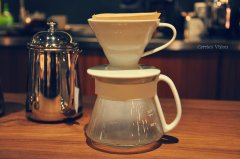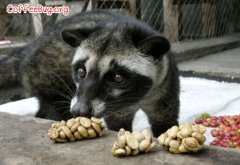Brazil is the largest coffee producer in the world.

Brazil is the largest coffee producer in the world.
Although Brazil has failed to increase production in recent years, it has greatly improved the quality of coffee in the past decade, trying to get rid of the idea that Brazilian weight is not important to quality and that Brazilian beans are as light as water. In recent years, it has successfully entered the boutique coffee market.
Who says Brazil doesn't have good beans!
The rating of producing areas in Brazil
Compared with the elevations of the producing countries in Central and South America, Brazil is significantly lower, with more estates below 1000 meters than above. The landform here is flat and monotonous, lack of microclimate, and accustomed to unshaded trees (sun-exposed) planting, resulting in the development of Brazil's unique soft bean flavor-low sour taste, heavy nutty flavor, good chocolate sweetness and mellowness, but slightly woody, flower and orange fragrance is not obvious. To put it simply, Brazilian coffee is light, and it is not easy to drink the wild and domineering aroma of sour and orange.
Brazilian coffee interprets soft bean aesthetics in five levels, in the following order: extremely supple (Strictly Soft) → supple (Soft) → slightly supple (Softish) → unpalatable (Hardish) → iodine choking (Rioy).
In other words, Brazilian beans do not emphasize the lively, sour, rhythmic and transparent characteristics of hard beans, but focus on the mild, smooth, mellow and sweet characteristics of soft beans, so Brazilian beans are more suitable for espresso.
Brazilian coffee farms choose sun, half-sun or water washing treatments according to the dry and humidity conditions of the climate to show the best regional flavor. Such a pluralistic approach is rare in the world.
So should it be washed in the sun, half-sun or water? This depends on local temperature conditions, as it can seriously affect whether pods (sheepskin beans) are overfermented and moldy during drying. Local estates will consider to use the best way to reduce the breeding of mold to deal with coffee beans. In principle, the washing method should be used in the areas with high humidity, and the sun or half-sun should be used in the areas with low humidity.
A fiery coffee manor
The best interpreter of soft bean aesthetics-Datera
After 20 years of research and development and cultivation, Daterra Farm, Brazil's national treasure, gives full play to the aesthetics of Brazilian soft beans. Denmark's barista Troels Paulsen won the second ○○ five World Cup barista contest (World barista champion) with the espresso formula of "Datela Sweet Confluence" (Daterra Sweet Collection). Two ○○ six Klaus Thomsen also won the second ○○ six-year World Cup barista contest based on the "Datela Sweet Confluence" with Costa Rica's La Minita coffee. Since then, "Datera" formula beans have immediately become a new favorite of boutique coffee.
The super sweet square bean of "Datera Sweet Confluence", including the four heavenly kings of Dateira, namely, wampee bourbon, wampee Kaduai, New World, and Ikatu 3282, is mixed with sun and half-sun in a certain proportion. After the raw beans are proportioned, they are immediately packed into vacuum-packed tin foil to block oxygen and moisture, so as to prevent the fragrance of raw beans from aging or loss. This practice is more exquisite than putting raw beans into sacks.
Summary
Over the past two decades, Brazil has used high technology to improve the quality of coffee, which has obviously washed away the notoriety of weight over quality, and injected new blood and creativity into boutique coffee. Brazil has long been famous for producing rotten beans, and it will play an important role in fine coffee in the future.
Han Huaizong's "Coffee Studies"
Important Notice :
前街咖啡 FrontStreet Coffee has moved to new addredd:
FrontStreet Coffee Address: 315,Donghua East Road,GuangZhou
Tel:020 38364473
- Prev

Common coffee terms how to express coffee beans in-line coffee terms?
About coffee beans: * Coffee cherry: the fruit of a coffee tree, named because its rind is bright red and its shape is very similar to cherries. * round beans: when the coffee fruit is growing, one of the two seeds develops very well, and the other seed is eaten so that the coffee bean that should be oval becomes round. * Elephant beans: bigger than ordinary coffee beans and usually taste
- Next

Indonesian coffee Asian coffee has a higher alcohol thickness than Central and South America and African beans.
The mellow thickness of Asian coffee is higher than that of Central and South American and African beans, but its sour taste is lower, with slightly sunken wood, herb, spice and earthy flavor, and its low and stuffy aroma is higher than that of rising sour flavor. At the end of the 17th century, the Dutch East India Company transplanted Indian Arabica trees (Tibica) to Jakarta, Java. Due to the favorable climate and soil, Arabica quickly spread to Sumatra in Java.
Related
- Detailed explanation of Jadeite planting Land in Panamanian Jadeite Manor introduction to the grading system of Jadeite competitive bidding, Red bid, Green bid and Rose Summer
- Story of Coffee planting in Brenka region of Costa Rica Stonehenge Manor anaerobic heavy honey treatment of flavor mouth
- What's on the barrel of Blue Mountain Coffee beans?
- Can American coffee also pull flowers? How to use hot American style to pull out a good-looking pattern?
- Can you make a cold extract with coffee beans? What is the right proportion for cold-extracted coffee formula?
- Indonesian PWN Gold Mandrine Coffee Origin Features Flavor How to Chong? Mandolin coffee is American.
- A brief introduction to the flavor characteristics of Brazilian yellow bourbon coffee beans
- What is the effect of different water quality on the flavor of cold-extracted coffee? What kind of water is best for brewing coffee?
- Why do you think of Rose Summer whenever you mention Panamanian coffee?
- Introduction to the characteristics of authentic blue mountain coffee bean producing areas? What is the CIB Coffee Authority in Jamaica?

